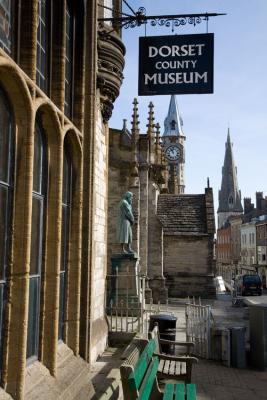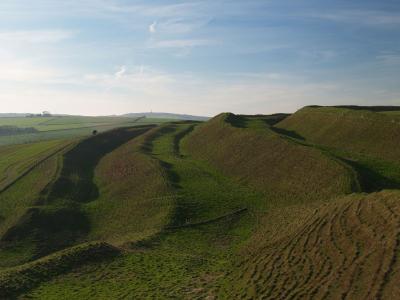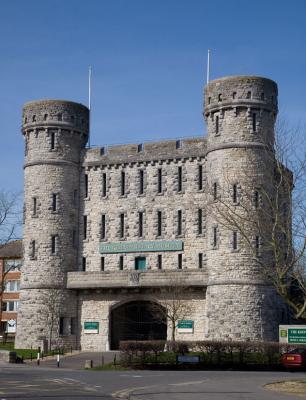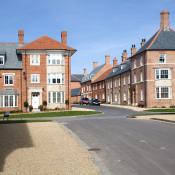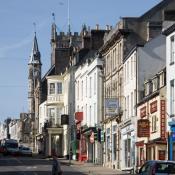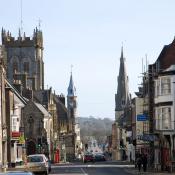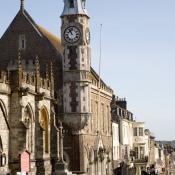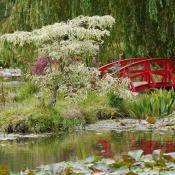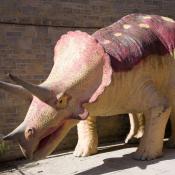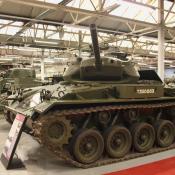
Dorchester is the county town of Dorset. To anyone who has read and enjoyed the novels of Thomas Hardy it is synonymous with the Wessex novels. Hardy was born in the nearby village of Higher Brockhampton. He went to school in the town and was later employed by a firm of architects there. Hardy spent much of his life in the town and there is a statue of him at the top of the town.
Dorchester has been inhabited from time immemorial. There are a number of Roman remains within the town itself including the Roman Town House, discovered in the 1930s. This interesting site is in the grounds of County Hall and many of the relics found there are exhibited in the County Museum. Many buildings within the town are from the Georgian period.
A few miles south of Dorchester lies Maiden Castle, the largest hillfort in England, with earth walls reaching up to a height of six metres. This incorporates remains from various ages, including a long barrow from the Neolithic period. When the Romans invaded Britain, the fort was occupied by the Durotriges Tribe and was a thriving town. The foundations of a 4th century Roman temple can still be seen there. The English Heritage site has free entrance all year round.
Closer to the town centre is another ancient monument. Maumbury Rings is an ancient henge, believed to be between four and five thousand years old, dating from the late Neolithic period. The Romans converted the site into an amphitheatre, one of the largest in Britain. In the first half of the 17th century, the earthwork was again remodelled to form a fort to guard one of the approaches to Dorchester.
Of course, Dorchester today has many modern attractions, among which are the Borough Gardens which offer tennis, bowling and a children’s playground. There is a market each Wednesday and lots of shops to attract the visitor. The Shire Hall is where the famous trial of the Tolpuddle Martyrs took place, at the “Bloody Assizes” under the jurisdiction of Hanging Judge Jeffreys.
There are a number of museums and galleries within the town, including a Dinosaur Museum and a Military Museum. The town has plenty of restaurants and shops plus several entertainment venues. Not far away is Cerne Abbas, a small village with a ruined abbey more famous for its huge chalk giant carved into the hillside. Hardy’s cottage in Higher Brockhampton is owned by the National Trust and open by appointment. His home in the town, Max Gate, which Hardy designed himself, is also owned by the Trust and open to the public.

